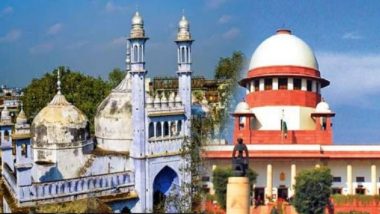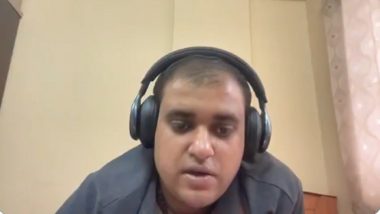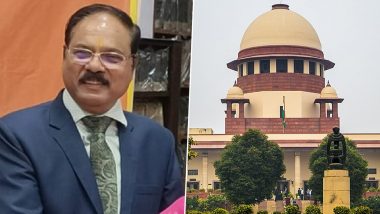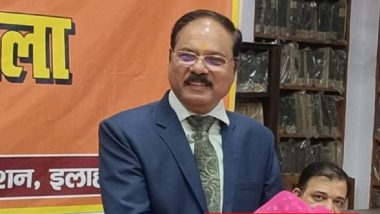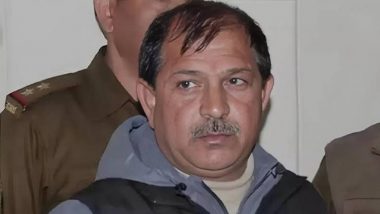Prayagraj, February 1: The Masjid Intezamia Committee of Gyanvapi mosque of Varanasi filed a revision petition in Allahabad High Court on Thursday against Varanasi District Court's order allowing Hindus to perform prayers inside the southern celler of Gyanvapi mosque. In the petition filed by the Mosque committee, they have sought a stay on Varanasi court order.
The plea stated that till now the petition regarding maintainability of the suit under Order 7, Rule 11 has not been decided. Therefore, the order to give the right to worship is not correct. Gyanvapi Mosque Case: Puja Performed Inside Mosque Complex; Muslim Side Challenges Order in Allahabad High Court (Watch Video).
In this case, Shailendra Pathak of the temple side has filed a caveat. Through the caveat, the Hindu side has demanded to hear the Hindu side before the peition is taken up. On January 31, the Varanasi district court allowed the Hindu side to offer prayers in the southern cellar of Gyanvapi mosque. The court directed the Varanasi district magistrate to make arrangements within seven days for "puja" to be performed by the Hindu side and a poojari nominated by Shri Kashi Vishwanath Temple Trust.
After the order of the court, "puja" and "aarti" were performed in the early hours on Thursday. The district court has issued the order on the plea of the head priest of Acharya Ved Vyas Peeth temple, Shailendra Kumar Pathak Vyas, seeking worship of Shringar Gauri and other visible, and invisible deities in the cellar of the mosque. Vyas is the scion of the family which was performing "puja" in this cellar till December 1993. Gyanvapi Mosque Case: Fast Track Court Orders Unsealing of ASI’s Survey Report.
The plea stated that Vyas's maternal grandfather, priest Somnath Vyas, used to perform prayers there till 1993 when the cellar was closed by the authorities. Following the Varanasi court order, Muslim side lawyer Akhlaq Ahmed said, "The order has overlooked the Advocate Commissioner report of 2022, ASI's report, and the decision of 1937, which was in our favour. The Hindu side has not placed any evidence that prayers were held before 1993. There is no such idol in the place."
The mosque has four 'tahkhanas' (cellars) in the basement, of which one is still in the possession of the Vyas family, who used to live there. Vyas had petitioned that, as a hereditary pujari, he be allowed to enter the tahkhana and resume pooja. The ASI survey, ordered by the same court, in connection with a related case, suggested that the mosque was constructed during Aurangzeb's rule over the remains of a Hindu temple.
(This is an unedited and auto-generated story from Syndicated News feed, LatestLY Staff may not have modified or edited the content body)













 Quickly
Quickly








